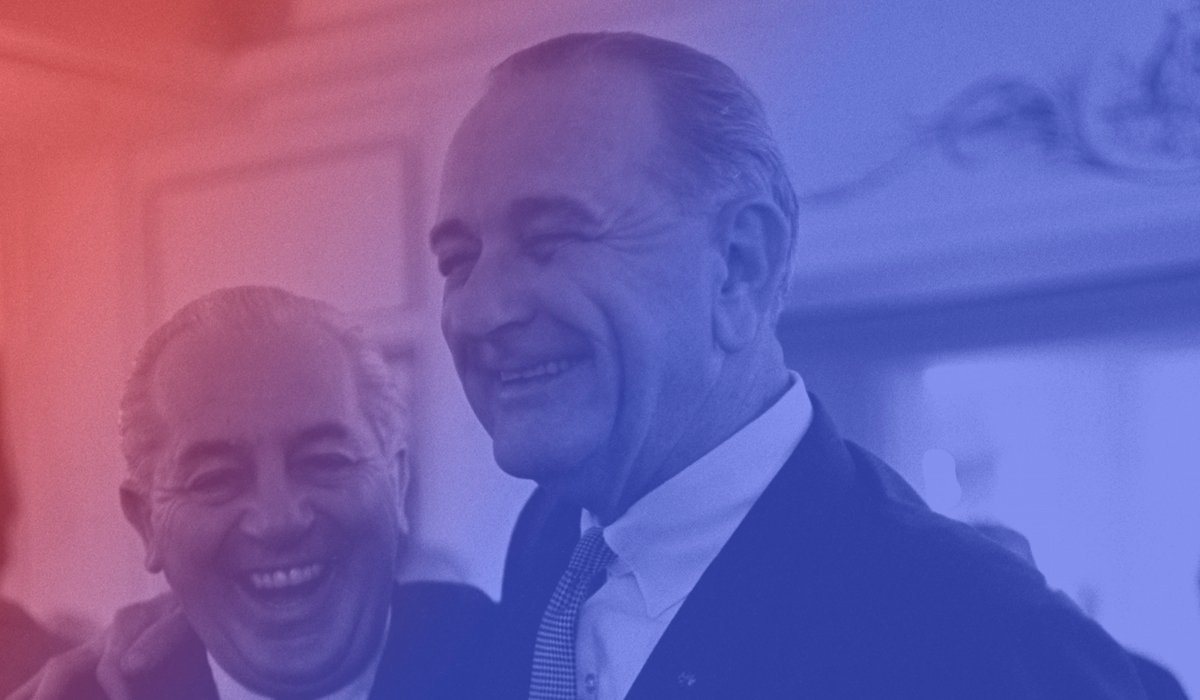The 36th president will be forever tied to two things: The death of John F. Kennedy, and the Stetson Open Road cowboy hat. But an image of that Southern Democrat swearing the oath of office aboard Air Force One next to a blood-soaked Jacqueline Kennedy Onassis shouldn’t be the only one that lasts.
Johnson was a man of dignity that ushered in liberal ideas to the highest office of the United States, and asked Americans to reach higher and share his common vision of “The Great Society.”
But the Vietnam War soon polarized Americans in a way that his vision of a great collective could never be realized, at least not during his time in office. A counter-revolution of conservatism was soon born, when a young actor from California named Ronald Reagan delivered a speech titled “A Time for Choosing” just as Johnson was primed to defeat challenger Barry Goldwater in a landslide victory for the ages.
Here’s more on Lyndon B. Johnson, as we reflect upon great presidents of the past and prepare for a Donald Trump presidency:
Education and Marriage
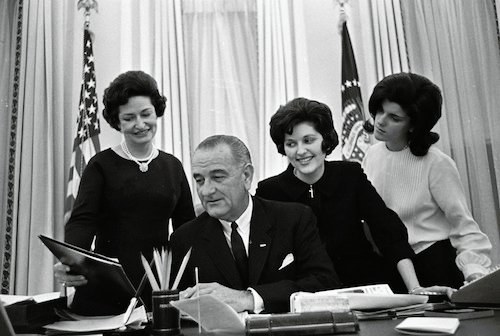
The Johnsons in the Oval Office (Wikimedia Commons)
Johnson came from a long line Texans who’d had the acumen for farming and ranching, just like in the stories of the western frontier. As a boy his family lost much of their land, and their good fortune with it, according to a historical account by the Miller Center.
After some years off the beaten path and a little bit of boisterous trouble, he enrolled in what’s now known as Texas State University. That was just a ways south of UT Austin’s journalism school, where his future love was studying classic literature.
In 1934 as a Congressional staffer, he met Claudia Alta Taylor, whose nickname “Lady Bird” is still synonymous with nature preserves and wildflowers throughout the Hill Country and America. During her time in the White House, Lady Bird would spearhead the First Lady’s Committee for a More Beautiful Capital and committed herself to the war on poverty.
The Great Society
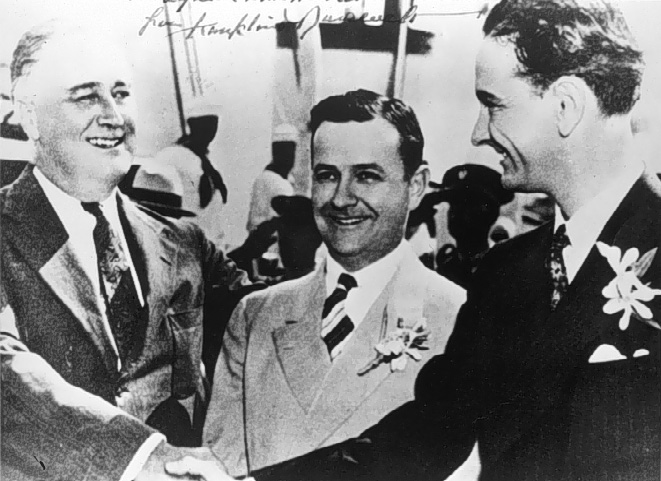
A young Lyndon Johnson meets President Franklin D. Roosevelt (Wikimedia Commons)
Inspired by FDR’s New Deal policies, LBJ thought he’d go one step further and institute the change that would amount to what he called “the great society.”
First, he would honor Kennedy’s tax cuts and sweeping Civil Rights Act and vow to uphold the late president’s vow to let us begin anew. Johnson’s own ambition came into play during 1964, when he faced down racial discrimination with the Voting Rights Act of 1964 along with the Immigration Act, and announced a War on Poverty while expanding Social Security and establishing programs such as Medicaid and Medicare.
“And with your courage and with your compassion and your desire, we will build a Great Society,” he said. “It is a Society where no child will go unfed, and no youngster will go unschooled.”
So it was that the Head Start program began, followed by the Community Action Program and the Higher Education Act of 1965.
Vietnam War
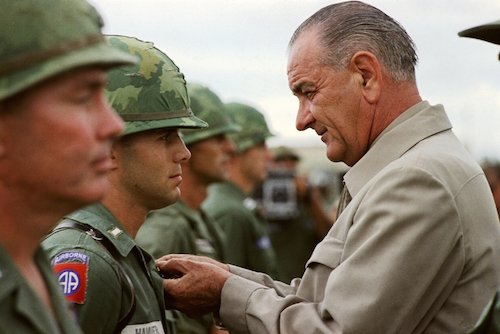
Wikimedia Commons
The massively unpopular and politically divisive Vietnam War was also a double-edged sword that siphoned resources away from would-be domestic programs that Johnson had championed as part of his great society.
Johnson was adamant in his support of the South Vietnamese, who were struggling at the time to fend off the North Vietnamese communists. Pledging U.S. support, Johnson at first sent 100,000 American troops to combat the threat of communism in Southeast Asia.
That number ballooned to 500,000 and it became an unwinnable war, crushing American sentiment with the deaths of tens of thousands of young men and women who entered through the draft. Johnson’s popularity would take a nosedive along with the direction of support for the war.
The final years
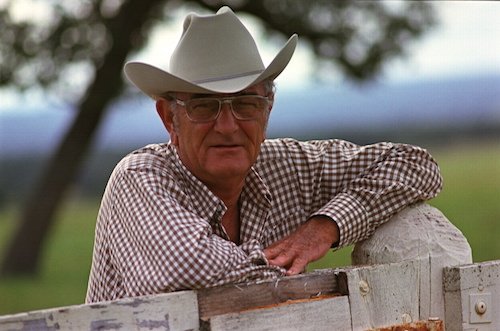
Wikimedia Commons
It became clear early in the election of 1968 that Johnson didn’t stand a chance at re-election. Thus, he took to television and announced it to the people: “I shall not seek, nor will I accept, the nomination of my party for another term as your president,” he said.
While he was writing a memoir and ranching back home in the Texas Hill Country, Johnson established his presidential library on UT’s campus in Austin. His retirement from politics would be short-lived, however. Johnson died suddenly of a heart attack at age 64, just five years out of office.
